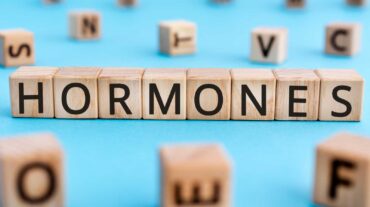[ad_1]
Who wants to engage in unwanted activities with their hormone slave? But how do you know if your hormones are out of control and what can be done to balance them?
From fatigue or weight gain to mood swings, there are signs of hormonal imbalance.
Understand the function of hormones in the body
Hormones are chemicals produced by the glands of the endocrine system that are found in the blood. When there is an imbalance of these hormones, there are too many or too few hormones in your body. Your hormones are important for regulating many different processes in the body, including appetite, metabolism, sleep cycles, reproductive cycles and sexual activity, body temperature, and mood. Even a slight deficiency in these can adversely affect your overall health.
Many changes occur with age
Hormone levels change at different stages of life. Especially during puberty, menstruation, pregnancy and menstruation. Lifestyle disorders and certain medical conditions can also cause your hormonal imbalance.

Therefore, it is important that you pay attention to the signs of hormonal changes. To get the right treatment on time.
Here are 5 signs of hormonal imbalance and possible remedies
Talking about hormonal imbalance, Manpreet, a nutritionist who deals with hormonal and gut issues, says that if these symptoms are recognized at the right time, women can avoid many problems.
1 change of mood
The female sex hormone estrogen affects neurotransmitters in the brain. Including serotonin (a chemical that affects mood). Fluctuations in estrogen can occur during premenstrual syndrome (PMS) or perimenopause, as well as during menopause.
What to do
If you feel low or stressed, your daily routine is bound to be affected. In this case, diet and lifestyle changes may work for you. Such as exercising, drinking alcohol and quitting smoking. Herbal remedies and hormone replacement therapy (HRT) may also be effective for you. If you’re perimenopausal or menopausal, all of these can improve your mood.
2 painful periods
If you have abdominal pain, frequent urination, back pain, or constipation, you may have fibroids. Fibroids are not cancers that develop in or near the uterus. Estrogen itself is believed to do this as well. This problem can also be genetic.
What to do
If you suffer from these symptoms, do not consult a doctor who may prescribe medication to shrink the fibroid.
3 Insomnia and light sleep
During perimenopause and menopause, the ovaries gradually reduce the production of estrogen and progesterone. These hormones are important for sleep. Low estrogen levels can cause abnormal night sweats, which can disrupt your sleep and also be responsible for fatigue and lack of energy.

What to do
If you are going through perimenopause or menopause, talk to your doctor about the benefits of HRT. It balances estrogen and progestagen levels. There are also practical things that can be done to improve sleep. Things like wearing cotton clothes, using cotton sheets, and keeping the bedroom cool and dark, as well as exercising, and reducing alcohol and caffeine consumption as much as possible.
4 Sudden weight gain
Several hormone-related conditions can cause weight gain. Who has an underactive thyroid. It’s a condition where your thyroid gland doesn’t produce enough thyroid hormone, thereby regulating your metabolism. It can lead to polycystic ovary syndrome (PCOS). Therefore, you are more likely to gain fat around your stomach.
What to do
If you’ve also gained weight, make changes to your diet or exercise level. If this does not affect your weight, you should see a specialist to check for thyroid problems or ovarian cysts.
5 Skin problems
If you still have acne as an adult, it could mean low levels of estrogen and progesterone and increased levels of androgen hormones. It can also be a symptom of polycystic ovary syndrome. Hormonal imbalances during pregnancy or menopause can cause itchy skin, while dry skin is a sign of menopause or thyroid problems.
What to do
If you have frequent skin problems, then it may be due to hormonal imbalance. For this you should consult a specialist doctor.
[ad_2]



Leave a comment